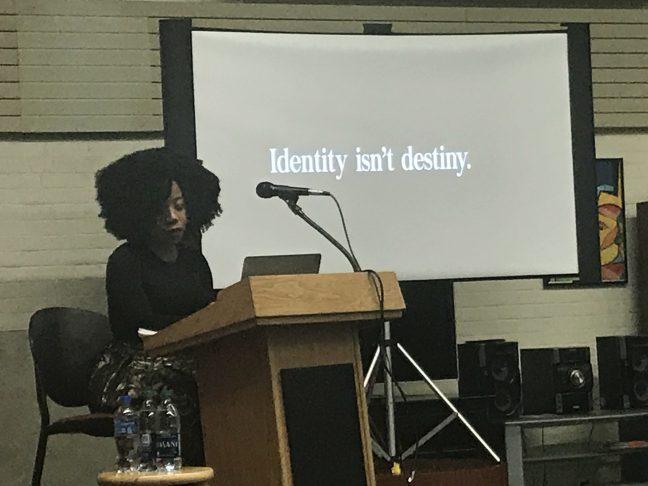Social justice speaker Kimberly Foster spoke Thursday evening about the role of race and identity politics in being a person of color in the U.S.
Foster is a cultural critic and the founder of For Harriet, a multi-platform digital space specifically created for black women. For Harriet reaches over 2 million visitors each month and is a platform for black women’s journalism and storytelling.
Foster said her work, both on the website For Harriet and as a social justice speaker, is mission-driven. Foster challenges people to question the origin of methods of teaching and learning assumed to be legitimate.
Foster advocated for a better understanding of identity politics.
“If you care about the well-being of any marginalized group, you care about identity politics,” Foster said.
Original black feminist theorists have carved out a way to get to the necessary mindset of togetherness which identity politics requires, Foster said.
Foster argued that personal experiences have a tendency to shape people’s political thoughts.
“[We must] refrain from leaning into our identities in ways that are not socially or politically productive,” Foster said.
Foster believes identity politics are not always engaged correctly by marginalized groups of people. It is believed if you are part of a marginalized group of people, Foster said you have the right to behave differently because of what you must do to walk through this world.
She argues it is possible to be loud and wrong as a marginalized person by incorrectly believing your personal experiences translates into a broad knowledge of all members of an identity group. Expertise on a subject still matters, Foster said.
Foster believes that critical conversations about identity politics require an understanding of power dynamics and a certain level of vulnerability. Personal identities should not prevent those conversations from happening, Foster said.
“Your identity cannot be a tool to avoid being challenged,” Foster said.


